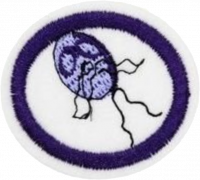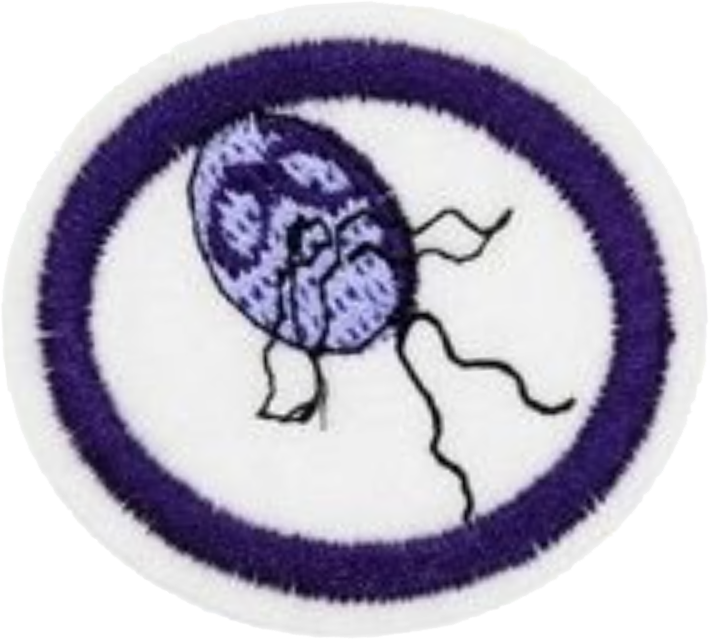Difference between revisions of "AY Honors/Protozoa/Requirements"
Jomegat bot (talk | contribs) (Bot: Automated import of articles *** existing text overwritten ***) |
m |
||
| (6 intermediate revisions by 2 users not shown) | |||
| Line 1: | Line 1: | ||
| − | + | {{HonorSubpage}} | |
| − | |||
| − | {{ | ||
<section begin=Body /> | <section begin=Body /> | ||
| − | + | <b>1. <section begin=req1 /><noinclude><translate><!--T:1--> | |
| − | <b>1. <section begin=req1 /><noinclude><translate></noinclude>What are the main characteristics of protozoa that put them in the Protista kingdom? What are the similarities and differences in relation to other protists (algae)? | + | </noinclude>What are the main characteristics of protozoa that put them in the Protista kingdom? What are the similarities and differences in relation to other protists (algae)? |
<noinclude></translate></noinclude><section end=req1 /></b> | <noinclude></translate></noinclude><section end=req1 /></b> | ||
| − | <b>2. <section begin=req2 /><noinclude><translate></noinclude>Be able to identify by pictures or photos five common protozoa, giving their scientific names. | + | <b>2. <section begin=req2 /><noinclude><translate><!--T:2--> |
| + | </noinclude>Be able to identify by pictures or photos five common protozoa, giving their scientific names. | ||
<noinclude></translate></noinclude><section end=req2 /></b> | <noinclude></translate></noinclude><section end=req2 /></b> | ||
| − | <b>3. <section begin=req3 /><noinclude><translate></noinclude>Give the classification of protozoa, giving their distinctive characteristics and at least one example of each group and its importance. | + | <b>3. <section begin=req3 /><noinclude><translate><!--T:3--> |
| + | </noinclude>Give the classification of protozoa, giving their distinctive characteristics and at least one example of each group and its importance. | ||
<noinclude></translate></noinclude><section end=req3 /></b> | <noinclude></translate></noinclude><section end=req3 /></b> | ||
| − | <b>4. <section begin=req4 /><noinclude><translate></noinclude>What are pseudopods? What is their purpose? | + | <b>4. <section begin=req4 /><noinclude><translate><!--T:4--> |
| + | </noinclude>What are pseudopods? What is their purpose? | ||
<noinclude></translate></noinclude><section end=req4 /></b> | <noinclude></translate></noinclude><section end=req4 /></b> | ||
| − | <b>5. <section begin=req5 /><noinclude><translate></noinclude>How do protozoa reproduce? How can they alter their genetic traits and be more resistant to aggressors? | + | <b>5. <section begin=req5 /><noinclude><translate><!--T:5--> |
| + | </noinclude>How do protozoa reproduce? How can they alter their genetic traits and be more resistant to aggressors? | ||
<noinclude></translate></noinclude><section end=req5 /></b> | <noinclude></translate></noinclude><section end=req5 /></b> | ||
| − | <b>6. <section begin=req6 /><noinclude><translate></noinclude>How do protozoa feed and breathe? | + | <b>6. <section begin=req6 /><noinclude><translate><!--T:6--> |
| + | </noinclude>How do protozoa feed and breathe? | ||
<noinclude></translate></noinclude><section end=req6 /></b> | <noinclude></translate></noinclude><section end=req6 /></b> | ||
| − | <b>7. <section begin=req7 /><noinclude><translate></noinclude>Amoebic dysentery and giardiasis (beaver fever) are gastrointestinal illnesses by similar protozoa. State three differences that distinguish them and how to prevent these illnesses. | + | <section begin=challenge /> |
| + | <b>7. <section begin=req7 /><noinclude><translate><!--T:7--> | ||
| + | </noinclude>Amoebic dysentery and giardiasis (beaver fever) are gastrointestinal illnesses by similar protozoa. State three differences that distinguish them and how to prevent these illnesses. | ||
<noinclude></translate></noinclude><section end=req7 /></b> | <noinclude></translate></noinclude><section end=req7 /></b> | ||
| + | <section end=challenge /> | ||
| − | <b>8. <section begin=req8 /><noinclude><translate></noinclude>Talk about Leishmaniasis and how dogs are related to the spread of this protozoan disease. | + | <b>8. <section begin=req8 /><noinclude><translate><!--T:8--> |
| + | </noinclude>Talk about Leishmaniasis and how dogs are related to the spread of this protozoan disease. | ||
<noinclude></translate></noinclude><section end=req8 /></b> | <noinclude></translate></noinclude><section end=req8 /></b> | ||
| − | <b>9. <section begin=req9 /><noinclude><translate></noinclude>Malaria is a disease that causes many deaths in the Amazon region and in Africa. Describe how it is contagious, what are its main symptoms and how this disease can be prevented and treated. | + | <b>9. <section begin=req9 /><noinclude><translate><!--T:9--> |
| + | </noinclude>Malaria is a disease that causes many deaths in the Amazon region and in Africa. Describe how it is contagious, what are its main symptoms and how this disease can be prevented and treated. | ||
<noinclude></translate></noinclude><section end=req9 /></b> | <noinclude></translate></noinclude><section end=req9 /></b> | ||
| − | <b>10. <section begin=req10 /><noinclude><translate></noinclude>Draw the cycle of Chagas disease (American trypanosomiasis) and explain each stage. What does it do to a human being? How is it transmitted? How can it be prevented? Is there a treatment? | + | <b>10. <section begin=req10 /><noinclude><translate><!--T:10--> |
| + | </noinclude>Draw the cycle of Chagas disease (American trypanosomiasis) and explain each stage. What does it do to a human being? How is it transmitted? How can it be prevented? Is there a treatment? | ||
<noinclude></translate></noinclude><section end=req10 /></b> | <noinclude></translate></noinclude><section end=req10 /></b> | ||
| + | |||
<section end=Body /> | <section end=Body /> | ||
| − | |||
| − | |||
| − | |||
| − | |||
| − | |||
Latest revision as of 11:59, 22 July 2022
1. What are the main characteristics of protozoa that put them in the Protista kingdom? What are the similarities and differences in relation to other protists (algae)?
2. Be able to identify by pictures or photos five common protozoa, giving their scientific names.
3. Give the classification of protozoa, giving their distinctive characteristics and at least one example of each group and its importance.
4. What are pseudopods? What is their purpose?
5. How do protozoa reproduce? How can they alter their genetic traits and be more resistant to aggressors?
6. How do protozoa feed and breathe?
7. Amoebic dysentery and giardiasis (beaver fever) are gastrointestinal illnesses by similar protozoa. State three differences that distinguish them and how to prevent these illnesses.
8. Talk about Leishmaniasis and how dogs are related to the spread of this protozoan disease.
9. Malaria is a disease that causes many deaths in the Amazon region and in Africa. Describe how it is contagious, what are its main symptoms and how this disease can be prevented and treated.
10. Draw the cycle of Chagas disease (American trypanosomiasis) and explain each stage. What does it do to a human being? How is it transmitted? How can it be prevented? Is there a treatment?



